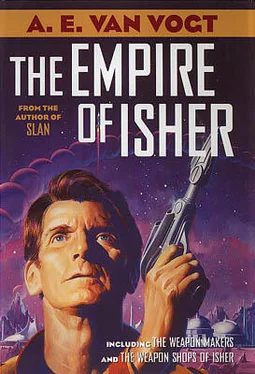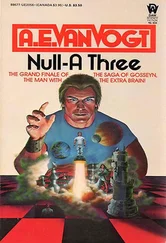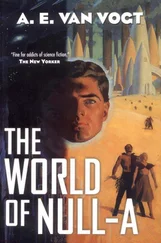There was certainly no city. Only trees, and uninhabited forest and a bitter, primeval winter. How long he stood there, while those winds blew and that storm [rased], he had no idea. He had time for a thousand thoughts, time to realize that the suit protected him from the cold as if there was no cold; and then—
The blizzard was gone. And the trees. He stood on a sandy beach. Before him stretched a blue, sunlit sea that rippled over broken, white buildings. All around, scattered far into that shallow, lovely sea, far up into the weed-grown hills, were the remnants of a once tremendous city. Over all clung an aura of incredible age, and the silence of the long-dead was broken only by the gentle, timeless lapping of the waves.
Again came that instantaneous transition. More prepared this time, he nevertheless sank twice under the surface of the vast, swift river that carried him on and on. It was hard swimming, but the insulated suit was buoyant with the air it manufactured each passing second. And, after a moment, he began to struggle purposely toward the tree-lined shore a hundred feet to his right. A thought came, and he stopped swimming. “What’s the use!” The truth was as simple as it was terrible. He was being shunted from the past to the future. He was the “weight” on the long end of an energy seesaw; and in some way he was slipping further ahead and further back each time. Only that could explain the catastrophic changes he had already witnessed. In an hour would come another change.
It came. He was lying face downward on green grass. When he looked up, he saw a halfdozen low-built buildings on the horizon of grass. They looked alien, unhuman. But his curiosity was not about them. A thought had come: How long actually, did he remain in one particular time?
He kept an eye on his watch; and the time was two hours and forty minutes. That was his last curiosity. Period after period, as the seesaw jerked on, he remained in his one position, water or land, it made no difference to him. He did not fight it. He neither walked nor ran nor swam nor even sat up…Past-future-past-future—
His mind was turned inward. He had a vague feeling that there was something he ought to do, inside his skin, not outside. Something about a decision he had believed he must make. Funny, he couldn’t recall what it was.
Beyond doubt, the gunmakers had won their respite. For at the far end of this dizzy teeter-totter was the machine that had been used by the Isher soldiers as an activating force. It too teetered past, then future, in this mad seesaw.
But that decision. He’d really have to try to think about it…
At ten minutes of midnight, July 16, 4748, Isher, the door of the coordination department of the weapon makers, in the Hotel Royal Ganeel, opened. Robert Hedrock came out and strode along a wide bright corridor that stretched off into the distance ahead of him. He moved with an almost catlike alertness but actually his attention was not on his surroundings.
Little more than a year ago he had applied for weapon shop membership, his given reason being that he expected a crisis between government and weapon shop forces and that he desired to be on the weapon shop side. His papers were in order, the Pp machine gave him so high a rating in every mental, physical and moral category that his file was immediately brought to the attention of the weapon shop executive council. From the beginning he was on special duty and his assignment to the coordination department during an emergency was merely a normal step in his meteoric rise to weapon shop power.
Hedrock was aware that a few members of the council and a number of the top executives considered his ascent too rapid and not in the best interests of the weapon shops. That he was even regarded by some as a mysterious figure, though no sinister connotations were intended by the critics. No one actually questioned the verdict of the Pp machine in his favor, which puzzled him at times. At some later date, he decided, he would investigate the machine much more carefully and discover just why normally skeptical men accepted its judgments without question.
It had proved inordinately simple for him to fool it, lie to it, tell it his carefully doctored story.
True, he had special control of his mind and abnormal technical knowledge of machine reaction to biological processes. There was also the overruling fact of his friendliness to the weapon shops—which undoubtedly helped. The Pp machine, he had been told, had the weapon shop door’s unique sensitivity for recognizing hidden hostility. And its basic structure included the ability, also built into every gun, to recognize and react within limitations. Like the weapons that would not kill except in self-defense or under other restrictions, its intricately acute electronic senses perceived minute differences in the reactions of every part of the examined body. It was an invention that had been developed since the last time he had been a member of the weapon shops a hundred-odd years before. It was new to him. And their dependence on it made it necessary for Robert Hedrock, Earth’s one immortal man, friend of the weapon shops, to make sure it was as effective a safeguard as they thought.
But that was for later. It was the least of the problems confronting him. He was a man who had to make up his mind, how soon was not yet clear—but all too soon it seemed to him. The first great attack of the youthful empress had already closed the weapon shops in every large city on earth. But even that was secondary compared to the problem of the endless seesaw. He could not escape the conviction that only he, of all the human beings on earth, was qualified to make the decision about that. And he still had not an idea of what to do.
His thought reached that point, as he came to the door marked Private—Executives Only, his destination. He knocked; waited the necessary seconds, then entered without further preliminary.
It was a curiously arranged room in which he found himself. Not a large room, by Isher standards, but large enough. It was so close to being a 200-foot cube that Hedrock’s eyes could not detect the difference. Its most curious feature was that the door, through which he entered, was about a hundred feet above the floor with the ceiling an equal distance higher. There was a platform just inside the door. From it projected an energy plane. Hedrock stepped into one of the pairs of insulators on the platform. The moment he felt them grip his shoes he walked out onto the vaguely glowing latticework of force.
In the center of the room (center on height-depth as well as length-width level) seven weapon shop councilors were standing around a machine that floated in a transparent plastic case. They greeted Hedrock briefly, then returned their attention to the machine. Hedrock watched them silently, conscious of their intense, unnormal depression. Beside him Peter Cadron whispered, “It’s almost time for another swing.”
Hedrock nodded. And slowly, as he gazed at the wizard mechanism floating in its vacuumized case, their absorption communicated itself to him. It was a map of time. A map of inter-crossed lines so finely drawn that they seemed to waver like heat waves on a torrid day.
Theoretically the lines extended from a central point into the infinite past and the infinite future (with the limitation that in the mathematics employed, infinity was almost zero). But after several trillion years the limitation operated to create a blurred effect, which was enhanced by the unwillingness of the eyes to accept the image. On that immense ocean of time, the shadowy shapes, one large and very near the center, one a mere speck on the curving vastness of the map, lay moveless. Hedrock knew that the speck was a magnified version of the reality, which was too small to make out with the naked eye. The image had been so organized that its every movement was followed by a series of magnifiers. These instruments were attuned to separate sensitive energies and adjusted automatically to the presence of additional onlookers.
Читать дальше











